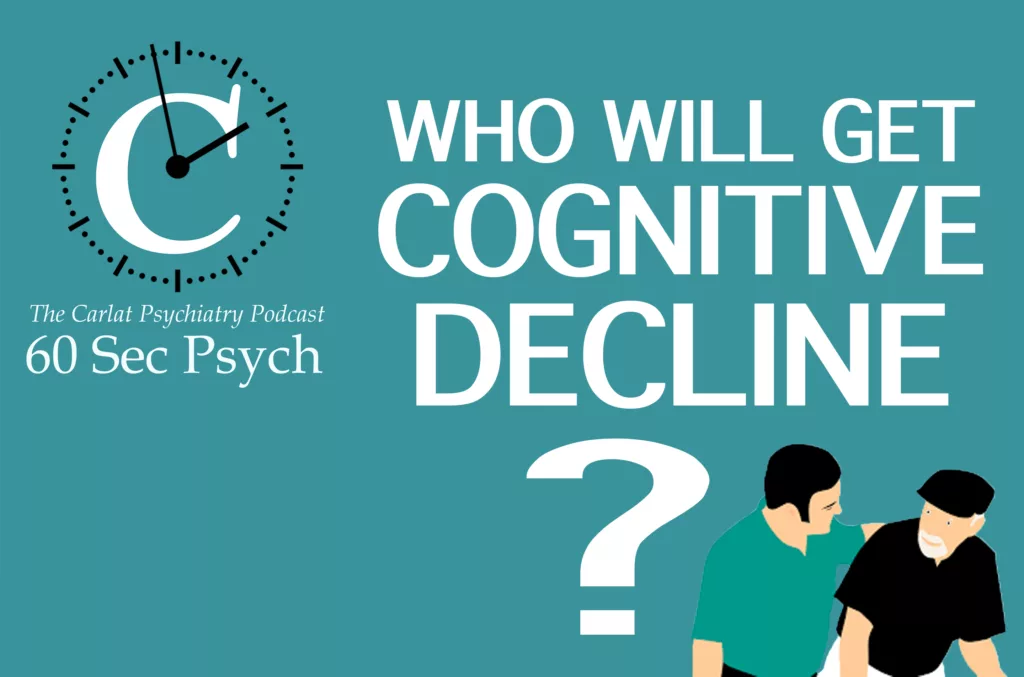The brain changes that lead to dementia can be seen as early as 25 years before the illness starts. We can’t test for those changes, but who might be at risk? This meta-analysis led by Carol Hudon looked at studies that followed healthy middle aged adults with no cognitive problems to see which behavioral and psychological factors predicted dementia and cognitive decline. [Link]
Published On: 6/23/20
Duration: 1 minute, 51 seconds
Transcript:
The brain changes that lead to dementia can be seen as early as 25 years before the illness starts. We can’t test for those changes, but who might be at risk? This meta-analysis led by Carol Hudon looked at studies that followed healthy middle aged adults with no cognitive problems to see which behavioral and psychological factors predicted dementia and cognitive decline.
Depression was the strongest predictor of future dementia and cognitive decline. Depression just about doubled the risk of mild cognitive impairment. The second best predictor? Sleep duration ─ both long (9 hours or more) and short (5 hours or less) sleepers had a greater risk of cognitive decline. The results stemmed from 28 studies all but 4 of which were prospective, involving 62,000 patients and an average follow up of 4 years.
Other variables they looked at included anxiety, apathy, agitation, irritability, and perceived stress. With these there was some evidence of a link to dementia or cognitive decline, but it wasn’t consistent or strong enough to make the cut.
These results are useful because depression and sleep duration are risk factors that people can change. Although the findings don’t prove that treating those risks will prevent cognitive decline, there’s reason to think they will, at least in part, and these results may encourage people to seek treatment and take better care of their mental health in middle age.
Got feedback? Take the podcast survey.


_-The-Breakthrough-Antipsychotic-That-Could-Change-Everything.webp?t=1729528747)



